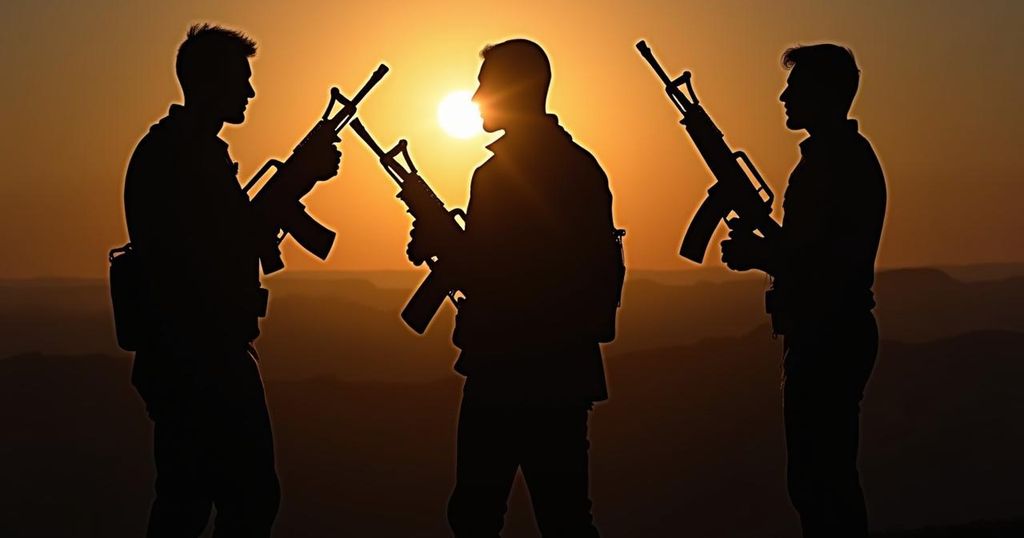Libya Takes Action Against Militia Leaders Following Trafficker’s Killing
Libya’s chief prosecutor has detained militia leader Mohamed Bahroun following his alleged involvement in the killing of notorious human trafficker Abdel-Rahman Milad. With a history of trafficking and violence, Milad’s death reflects the complexities of human trafficking in Libya, raising concerns about international partnerships and the treatment of migrants.
In a significant development in Libya’s ongoing battle against human trafficking, the chief prosecutor has ordered the detention of militia leader Mohamed Bahroun along with an aide, following their alleged involvement in the killing of notorious trafficker Abdel-Rahman Milad. Milad, also known as “Bija,” had previously commanded a coast guard unit and was included on the United Nations Security Council’s sanctions list for his role in human trafficking operations. Milad was shot while seated in a vehicle in Tripoli, prompting Bahroun and his associate to surrender to authorities amid rising allegations concerning their participation in this act of violence. Milad had a notorious history, having been implicated in the deliberate sinking of migrant boats and previously imprisoned on trafficking charges. His complex relationship with Italian authorities came under scrutiny when it was revealed that he attended a meeting in Sicily with officials discussing migration control. This meeting followed a controversial agreement between Italy and Libya, aimed at improving collaboration in intercepting migrant boats attempting to reach Europe. Despite his arrest in 2019, Milad’s links to human trafficking were repeatedly denied, and he even received a promotion within the coast guard. The European Union has expressed its commitment to support Libya in combating human trafficking, emphasizing the need to hold accountable individuals like Milad. The broader context of Libya’s migration crisis underscores the dangers that migrants face, often linked to violence and exploitation. Recent incidents highlight the perilous journey migrants undertake, frequently encountering exploitation at the hands of those who are meant to protect them. Bahroun’s and Milad’s narratives illustrate the complexities surrounding power dynamics in Libya, raising serious questions about the effectiveness of international partnerships in addressing this humanitarian catastrophe.
Libya serves as a critical gateway for migrants attempting to reach Europe, primarily from sub-Saharan Africa and the Middle East. The journey across the Mediterranean is fraught with danger, as many migrants rely on ill-equipped vessels to undertake the crossing. The situation has been exacerbated by the actions of individuals like Abdel-Rahman Milad, a former coast guard commander implicated in human trafficking operations. With various factions and armed groups exerting control over these migration routes, allegations of collusion between them and governmental authorities have emerged. In addition, international partnerships, notably between Libya and Italy, have aimed at curbing migration flows, yet these arrangements have been criticized for compromising the safety of migrants who often find themselves in abusive detention centers upon interception.
The recent detention of militia leader Mohamed Bahroun signals a critical step in Libya’s struggle against human trafficking and the systemic issues that underpin it. The death of Abdel-Rahman Milad not only sheds light on the violent realities faced by traffickers but also highlights the complexities of migration in Libya. With the backdrop of international agreements and persistent allegations of complicity, the case underscores the pressing need for a cohesive and humane approach to migration management in the region, prioritizing the dignity and safety of vulnerable populations.
Original Source: www.euronews.com




Post Comment